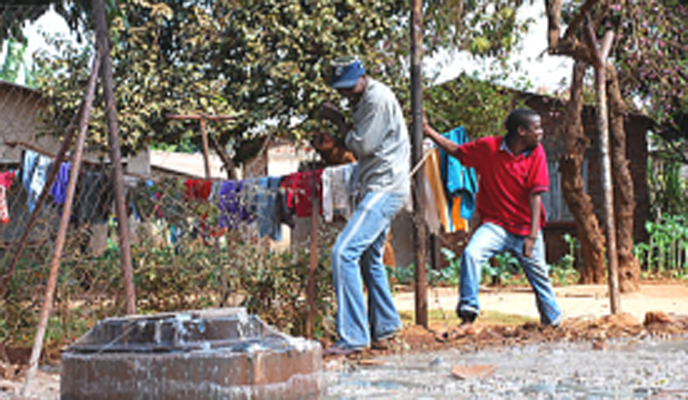
Harare City Council is in panic mode over a likely typhoid outbreak with all departments now involved in the response to the cases which have risen to 15 and are following up on 125 suspected cases.
By Phyllis Mbanje
Areas affected include Glen Norah, Glen View, Budiriro, Hatfield and Hopley.
“All departments are now involved. The works department has to ensure litter is collected, the water section making sure water is provided,” council spokesperson Michael Chideme said.
An outbreak will only be declared when the cases reach a threshold of 30 and above.
“Our health promotion officers are on the ground and are aggressively raising awareness through educating the communities,” Chideme said.
A person can contract typhoid fever if they eat food or drink beverages that have been handled by a person who is infected or if sewage contaminated with the bacteria gets into the water used for drinking or washing food.
- Chamisa under fire over US$120K donation
- Mavhunga puts DeMbare into Chibuku quarterfinals
- Pension funds bet on Cabora Bassa oilfields
- Councils defy govt fire tender directive
Keep Reading
However, typhoid fever can be successfully treated with appropriate antibiotics.
Vendors who operate in the vicinity of public toilets and rubbish heaps have been warned to desist from the practice as it created a conducive environment for disease outbreaks. Limited trading space has forced desperate vendors to sell their wares right in front of toilets, posing a serious health hazard to their customers.
“We are warning such vendors to be considerate of their customers and trade in places that are appropriate. They are also at risk of diseases like typhoid which flourish under unhygienic conditions,” Chideme said.
Vendors, especially at Speke Avenue bus terminus, were operating a metre away from the toilets which were filthy and have no running water.
But customers were seemingly not deterred by the affront of the putrid odours and fall over each other to get the cheap second-hand clothes.
“We will launder the clothes when we get home so there is no reason for alarm,” said a female customer.
The vendors, too, seemed unconcerned about their surroundings and some were even having lunch despite the hovering green flies everywhere.
“They have an obligation to themselves and their families as well as their customers,” said Chideme.
However, the vendors were heaping blame on city fathers for failing to allocate them appropriate trading zones with standard ablution facilities.
Over the years as the population increased, the pressure on these facilities has left them in a sorry state, but also general hygiene attitudes have nosedived.
Street children and touts defecate openly leaving most street corners littered with human excreta.












